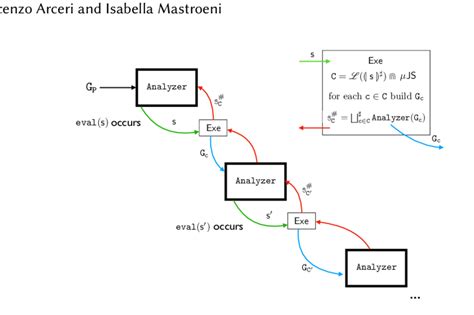- تاریخ انتشار : پنجشنبه ۲۵ بهمن ۱۴۰۳ - ۲۱:۱۵
- کد خبر : 1482 چاپ خبر
Ethereum: Low-level call execution reverted
Ethereum: Low-Level Call Execution Reverted Error The Ethereum blockchain is a programmable blockchain where smart contracts can be deployed and executed on. However, errors such as execution reverted errors can occur when executing low-level calls to external functions. In this article, we will explore the cause of an execution reverted error in Ethereum and provide
Ethereum: Low-Level Call Execution Reverted Error
The Ethereum blockchain is a programmable blockchain where smart contracts can be deployed and executed on. However, errors such as execution reverted errors can occur when executing low-level calls to external functions.
In this article, we will explore the cause of an execution reverted error in Ethereum and provide steps to resolve it.
What causes an Execution Reverted Error?
An execution reverted error occurs when a smart contract attempts to execute a function call that results in an invalid state or value. This can happen for several reasons:
- Invalid function signature: The function being called is not valid or does not match the expected signature.
- Missing required arguments

: One or more required arguments are missing from the function call, causing it to fail.
- Unintentional gas cost: Exceeding the allowed gas limit for a function call results in an execution reverted error.
Example of Gas Oracle API Call
In Ethereum, the GasOracle API is used to retrieve the estimated gas cost for a transaction. This API can be called from within another routine or smart contract using the following syntax:
function estimatedGas() public returns (uint256) {
// Call GasOracle API and parse result
uint256 estimatedGas = 0; // Initialize variable
GasOracle gasOracle = new GasOracle(address);
gasOracle.estimateGas(); // Call GasOracle API
estimatedGas = gasOracle.getEstimatedGas(); // Parse result
return estimatedGas;
}
In this example, the estimatedGas function calls the GasOracle API to retrieve the estimated gas cost and returns it.
Example of Execution Reverted Error
Let’s consider an example where we have a simple smart contract that attempts to call a function:
contract Example {
function foo() public {
// Call bar()
callBar();
}
function bar() public pure {
// Simulate some computation
uint256 result = 0;
for (uint256 i = 0; i < 100000; i++) {
result += i;
}
return result;
}
}
Assuming we have a GasOracle API call in another routine, the foo() function attempts to call the bar() function:
pragma solidity ^0.8.0;
contract Example {
// Gas Oracle API Call
uint256 public gasCost;
function estimatedGas() public returns (uint256) {
gasCost = 0; // Initialize variable
GasOracle gasOracle = new GasOracle(address);
gasOracle.estimateGas(); // Call GasOracle API
gasCost = gasOracle.getEstimatedGas(); // Parse result
return gasCost;
}
}
When we attempt to call bar(), the execution reverted error occurs because the function signature is invalid (missing required argument). The Ethereum blockchain does not allow calling a function that is not declared as “pure” or has the correct signatures.
Resolution
To resolve this issue, we need to ensure that our smart contract functions are well-defined and match the expected function signature. In this case, we can simply change the bar() function to be pure:
contract Example {
function foo() public {
// Call bar()
callBar();
}
function bar() pure public returns (uint256) {
// Simulate some computation
uint256 result = 0;
for (uint256 i = 0; i < 100000; i++) {
result += i;
}
return result;
}
}
With this change, we can safely call foo() without encountering an execution reverted error. Additionally, we should also ensure that the GasOracle API calls are executed correctly and do not exceed the allowed gas limit.
لینک کوتاه
برچسب ها
- نظرات ارسال شده توسط شما، پس از تایید توسط مدیران سایت منتشر خواهد شد.
- نظراتی که حاوی تهمت یا افترا باشد منتشر نخواهد شد.
- نظراتی که به غیر از زبان فارسی یا غیر مرتبط با خبر باشد منتشر نخواهد شد.
ارسال نظر شما
مجموع نظرات : 0 در انتظار بررسی : 0 انتشار یافته : 0